
Burns and Allen were an American comedy duo consisting of George Burns and his wife, Gracie Allen. They worked together as a successful comedy team that entertained vaudeville, film, radio, and television audiences for over forty years.

William Clement Frawley was an American Vaudevillian and actor best known for playing landlord Fred Mertz in the sitcom I Love Lucy. Frawley also played "Bub" O'Casey during the first five seasons of the sitcom My Three Sons and the political advisor to the Hon. Henry X. Harper in the film Miracle on 34th Street.
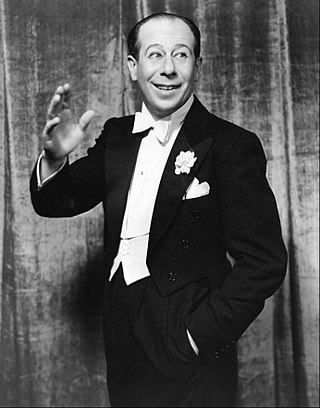
Irving Lahrheim, known professionally as Bert Lahr, was an American stage and screen actor and comedian. He was best known for his role as the Cowardly Lion, as well as his counterpart Kansas farmworker "Zeke", in the Metro-Goldwyn-Mayer adaptation of The Wizard of Oz (1939). He was well known for his quick-witted humor and his work in burlesque and vaudeville and on Broadway.

Joseph Leo Mankiewicz was an American film director, screenwriter, and producer. Mankiewicz had a long Hollywood career, and won both the Academy Award for Best Director and the Academy Award for Best Adapted Screenplay in consecutive years for A Letter to Three Wives (1949) and All About Eve (1950), the latter of which was nominated for 14 Academy Awards and won six.

William Washington Beaudine was an American film director. He was one of Hollywood's most prolific directors, turning out a remarkable 179 feature-length films in a wide variety of genres.
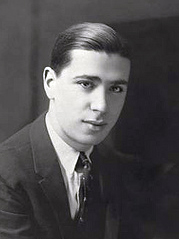
Sam Coslow was an American songwriter, singer, film producer, publisher and market analyst. Coslow was born in New York City. He began writing songs as a teenager. He contributed songs to Broadway revues, formed the music publishing company Spier and Coslow with Larry Spier and made a number of recordings as a performer.

Harry Bernard was an American actor and comedian best remembered for his appearance in numerous comedy films by Mack Sennett and Hal Roach.
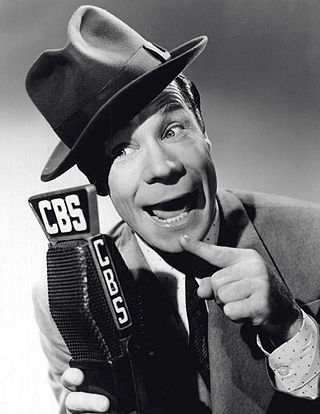
Joseph Evans Brown was an American actor and comedian, remembered for his friendly screen persona, comic timing, and enormous, elastic-mouth smile. He was one of the most popular American comedians in the 1930s and 1940s, and enjoyed lengthy careers in both motion pictures and radio. Later he became a character actor and comedian, as in Some Like It Hot (1959), in which he utters the film's famous punchline "Well, nobody's perfect."

Educational Pictures, also known as Educational Film Exchanges, Inc. or Educational Films Corporation of America, was an American film production and film distribution company founded in 1916 by Earle Hammons (1882–1962). Educational primarily distributed short subjects; it is best known for its series of comedies starring Buster Keaton and the earliest screen appearances of Shirley Temple (1932–34). The company ceased production in 1938, and finally closed in 1940 when its film library was sold at auction.

Joseph Mansfield Santley was an American actor, singer, dancer, writer, director, and producer of musical theatrical plays motion pictures and television shows. He adopted the stage name of his stepfather, actor Eugene Santley.
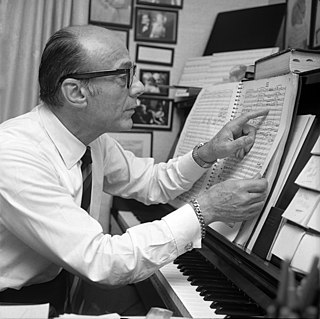
John Waldo Green was an American songwriter, composer, musical arranger, conductor and pianist. He was given the nickname "Beulah" by colleague Conrad Salinger. His most famous song was one of his earliest, "Body and Soul" from the revue Three's a Crowd. Green won four Academy Awards for his film scores and a fifth for producing a short musical film, and he was inducted into the Songwriters Hall of Fame in 1972. He was also honored with a star on the Hollywood Walk of Fame.

Elmer Goodfellow "El" Brendel was an American vaudeville comedian turned movie star, best remembered for his dialect routine as a Swedish immigrant. His biggest role was as "Single-0" in the sci-fi musical Just Imagine (1930), produced by Fox Film Corporation. His screen name was pronounced "El Bren-DEL".
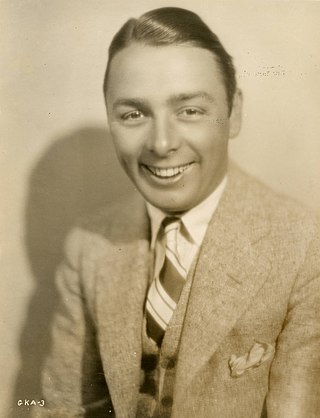
Arthur George Brest, known professionally as George K. Arthur, was an English actor and producer, born in Aberdeen, Scotland,. He appeared in more than 50 films between 1919 and 1935, and is best known as the diminutive half of the comedy team of Dane & Arthur.

Richard "Skeets" Gallagher was an American actor. He had blue eyes and his naturally blond hair was tinged with gray from the age of 16.

Joseph Bridger Cawthorn was an American stage and film comic actor.
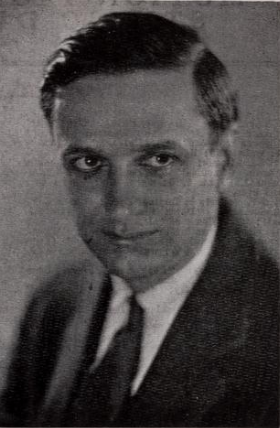
Howard J. Green was an American screenwriter who worked in film and television. He was the first president of the Screen Writers Guild and a founder of the subsequent Writers Guild of America, West.

Harry Fischbeck (1879–1968) was a German-born cinematographer who emigrated to the United States where he worked in the American film industry. He was employed by a variety of different studios during his career including Universal, United Artists and Warner Brothers, but primarily for Paramount Pictures. One of his first credits was for the historical The Lincoln Cycle films directed by John M. Stahl.

Thomas Black Jr., known professionally as Tom Howard, was an Irish-born American comedian in burlesque, vaudeville, radio, film, television and Broadway plays. He co-wrote and starred in the radio comedy show It Pays to Be Ignorant.

George Sidney was a Hungarian-born American film actor and comedian. He starred in The Cohens and Kellys film series.

















